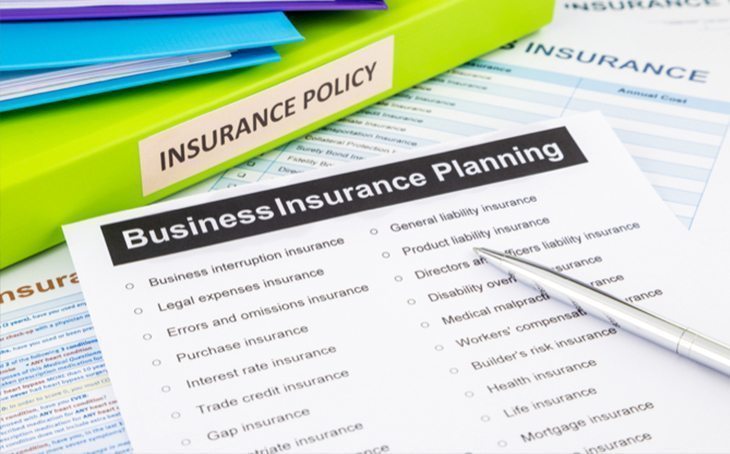Risk management is a must for any business, whether you realize it or not. Business owners have a number of different ways to manage the risk associated with their company, including:
- Retention: you can carry the risk and liabilities yourself. If something happens, you pay for it yourself.
- Avoidance: let’s say your business has three locations and one is not making any money. You might choose to close that branch and avoid unnecessary risk.
- Control/minimization: much like an airbag doesn’t prevent a crash, it only reduces risk of injury, controlling or reducing the impact of risk is a third possibility when it comes to risk management.
- Insurance: beyond these three plans, purchasing insurance is often an affordable and smart choice.
Every business under the sun needs to handle its own individual risks and liabilities, regardless of field. All companies need business insurance to protect themselves, but of course not all businesses are built the same. As a business owner, you don’t have to purchase every type of business insurance, but you should seriously consider what policies best fit your needs.
A fundamental purchase when it comes to insurance is a general liability policy, also known as Commercial General Liability (CGL). This is a policy which covers many different areas. If you don’t purchase a CGL policy, your business is open to liability claims from many directions.
But what about property insurance? This depends on the type of property you have and whether or not you can bear the cost of losing it. If you have several locations, sometimes you can shoulder loss of one location based on the financial standing and strength of your business. Only you can decide how much property loss you can withstand and still remain viable.
When it comes to individual business insurance packages, there are many different types, and not every business will need every one. This is where you may be able to save money in business insurance: by deciding which specific additions you need to your CGL.
Also Read: Business Interruption Insurance Explained
Below are some additional types of insurance you might consider for your business:
Life insurance on partners
If your business is a partnership, have all partners sign an agreement saying ownership will divvy up among remaining partners and life insurance proceeds will go to the deceased’s family. This will avoid having a spouse with no experience in the business or its operations as a working partner.
Crime insurance
The property insurance you buy doesn’t cover money lost in a robbery, a stolen bank account or any cash taken from registers by dishonest employees. If you want money covered, you have to buy crime insurance, which comes in a menu format with several items you can choose, depending on the risks faced by the business in question. You can have any or all—there are different types of coverage designed to meet certain needs.
Valuable papers insurance
While the majority of businesses are computer-based, many companies still need to protect paperwork. Valuable papers insurance is usually something companies who have extensive backlogs of paperwork and physical data need.
Equipment coverage
This covers mechanical breakdown or electrical injury to businesses from “artificial current.” It also can cover a loss of business income and employee payroll if the business has to shut down due to the breakdown. These packages are fairly affordable because these types of losses are rare.
There are several other caveats when it comes to picking the correct business insurance to go with your CGL.
- If your business is mobile, consider purchasing mobile equipment and auto insurance
- If you are a contractor, there are ways to insure building materials left on a job site
It all depends on your business and the amount of loss you can absorb before your risk becomes unmanageable. It’s critical to build a solid business insurance foundation to protect the business and then decide on the right balance between your risk tolerance and the cost of coverage.






